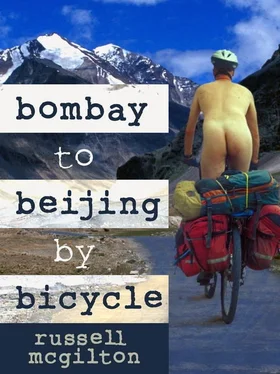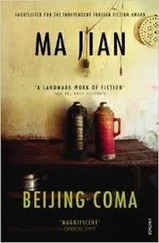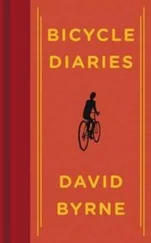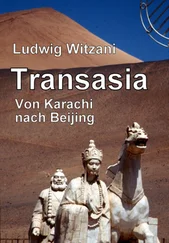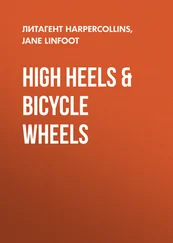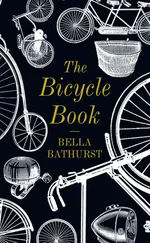‘If only India was like a Bollywood movie’, I thought wistfully. ‘Everyone dancing and singing their way out of poverty.’
* * *
The next morning I found myself in the rear of the Naval Office.
‘You are vanting a map? You can try the CD-ROM,’ said the Government Tourist Officer, whose skin was the colour of coal and his mouth too small to accommodate his crowded teeth.
When I went over to do just that, it wasn’t working. When I told him of this he smiled as if he already knew.
‘You can try the brochure.’
‘But I’m after a map of India.’
‘There is a map in it.’
He passed the brochure across the desk and I flicked through it. There were pictures of the usual tourist spots: the Taj Mahal, Jaisalmer Fortress, and hill stations. But one that caught my eye was a title declaring ‘Come and see Wild Asses!’ I immediately thought of bums cavorting and whinnying around a paddock. I laughed so loudly that the Tourist Officer broke from his chai , looked at the brochure again, and then stared at me with curious, skewed eyes.
‘What’s so funny?’ I heard an English accent waft up from a leather couch. A young British couple sat with exhausted defeat. I pointed to the brochure and showed them my ‘Wild Ass’.
‘Oh, I see,’ a young man said, unimpressed, and went back to reading his guidebook.
Jesus! What’s wrong with these people? The very core of British comedy is built on bum humour. Carry On Up the Khyber , I say.
‘Just arrived?’ I enquired, with a hint of authority in my voice, trying to wash away my apparent faux pas.
‘No. We’re finishing up the trip. We’ve had enough,’ he replied, shaking his sandy locks.
‘Eh?’
‘Culture shock,’ he said. ‘Can’t deal with it, man. It’s all too much. Delhi was ’orrible. Goa was better. More our scene. Lyin’ on the beach, chillin’. What are you doin’?’
‘Cycling.’
‘Cycling!’ said his girlfriend with a weary look. ‘Mate, you’re mad.’
‘Yes,’ I raised a proud eyebrow. ‘I know.’
‘No, no. You’re mad ,’ she said seriously. ‘I’m tellin’ ya, it gets to ya. The starin’, the ’assle, being ripped off, same questions every bloody day. We were on a bus most of it. God knows what it would be like on a bike.’
Hassle? Staring? Culture shock? What were they on about? I’d hitchhiked through most of Africa. I’d survived typhoons while motorbiking around Taiwan. I’d nearly been shot at in Uganda. I’d been chased with machetes in the Congo. And I’d even eaten sandwiches on British Rail! I was tough, baby.
But as I was to discover, no matter what a travel legend I thought I was, nothing would ever prepare me for the challenges of mother India.
3
MUMBAI – NASIK
Mid-January
Like a partly buried orange, the morning sun struggled to free itself from the scrim of haze that hung over Mumbai. Blue ragged houses lined the already busy highway, where large trucks and buses jockeyed for position. The outskirts of the city were flanked by swampy marshlands littered with never-ending industrial gas pipes, while new apartments were already succumbing to the growing mildew on their walls and windows.
I was on a bus headed for Nasik, a small city some 200 kilometres northeast of Mumbai, taking the memory of carbon monoxide, nausea and gridlocked traffic with me.
Yes. I know. That’s cheating.
I had struggled with the idea, but when it came to my health I overcame my ego of cycling every kilometre of the trip. I could not see the point of spending another day trying to find my way out of the city and falling victim to the noxious fumes. Hopefully I would get to the town of Yeoli today then to Aurangabad before heading north.
An hour out of Mumbai, the land dried up; marshlands evaporated into dead brown fields while industrial zones receded from paddy fields and scraggy scrub. The bus pushed upwards through the snubbed noses of small hills.
Laughter ricocheted around the bus from a group of young men behind me.
‘What are you thinking of Bombay?’ one of them asked me.
‘I thought it was called Mumbai?’ I said quickly.
‘My friend, this is India. We call it what we like. Besides, the name is only for Maharashtrans.’
They were a happy, rowdy bunch. We got chatting, and they told me they were off to a sales meeting in Nasik. I asked them about Bollywood films, why they are so Western – the clothes, the houses, all so unrealistically clean and nothing like the India I had seen so far.
‘Because it is everything what we want in life to be,’ he said. ‘How we wish to see it. And this is how you may see India. You can’t have someone tell you this is how India is or what you read. You have to find your own picture of India.’
He was all of 23 and I found him refreshingly wise. Alas, I forget his name now.
‘There is no kissing in Bollywood films,’ I said. ‘Why is that?’
‘Yes, you never see this. Very rare. They will have dancing, singing and a bit of vulgarity but no kissing. We are still a very conservative people here in India. In the West you show your love by kissing. We also, but with commitment. When you marry in the West maybe you only do it for a few years. For us it is seven lifetimes.’
‘Seven? Seven lifetimes?’
‘Karma. Next life, next life and so on.’
‘But what if you don’t like each other?’
‘They have to work it out. Family and relations are very important.’
I’m not particularly close to my family, something of which, in my experience, is common to many Western families. Indians, on the other hand, seem more socially connected and supported, out together at night in restaurants talking loudly to each other, children falling off them or running around, babies sound asleep in their arms. We are so atomised in the West, so cut off.
‘What do you think of Western women?’ I asked, curious about the Indian perception, with the influx of American movies and the Internet in India.
‘We think that they are not true. They would not be true to you. They would go with another man. You have a wife?’
‘Girlfriend.’
‘Why is she not with you now?’
‘She’s travelling. I mean, she will be travelling, in Thailand.’
‘In India for a woman to be travelling alone is not allowed.’
‘Things are different in the West,’ I said, deciding to leave it at that.
It would be four long months before I saw Rebecca again. She was now in Broome, in north-western Australia, awaiting the birth of her sister’s baby. I suddenly realised how much I missed her.
* * *
The bus slowed to a halt at Nasik. As I exited the bus I was buzzed by a swarm of auto-rickshaw drivers who pulled at my arms, bartered in my ear but then dropped me like the clappers when they saw I had a bike.
At the tourist office, looking for a local map, the staff suggested I see the Buddhist caves.
‘These are very wonderful,’ said a man with a sharp, thin moustache and a happy round stomach. He handed me a warm cup of chai . ‘They are the Pandav Lena Caves. Two thousand years old! Very beautiful. Many foreigner come see them.’
‘Is it very far?’
‘Only six kilometres backside.’
‘Backside?’ This was something I would find Indians often said when they meant ‘back’, ‘behind’ or ‘rear’. ‘The toilets are backside!’ I tried to stifle a laugh.
‘Better for you to stay in Nasik and go to caves.’ He slurped his tea. ‘It is too late for you to be cycling. It is now two o’clock. Too much late, isn’t it?’
He was right. It was getting on and, although it was January and we were still in their winter, it was warm enough for drops of sweat to trickle down my back.
Читать дальше
